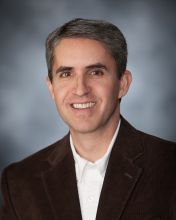 Many of us got into radio all those years ago because we love music. Whether you’re in programming, sales, or some other aspect of the business, music passion very likely played lit that spark.
Many of us got into radio all those years ago because we love music. Whether you’re in programming, sales, or some other aspect of the business, music passion very likely played lit that spark.
Now imagine going to college and taking a class that would enable you to have a deeper appreciation for music, perhaps by zeroing in on an artist like the Stones or Willie Nelson, or an entire genre, like Country, Hip Hop, or Classic Rock.
Dave Whitt is a Professor of Communication Studies at Nebraska Wesleyan University in Lincoln, Nebraska, and he does just that. Dave teaches classes in Persuasion, Mass Media, and Communication. But the class that caught our attention is “Songs of Ascent: The Music and Meaning of U2.” He is also in the beginning stages editing a book on teaching popular music in the classroom.
For today’s Guest List, Dave discusses why classes on popular music should be a subject of study in the education process, especially at the college level. – Seth Resler
1. It’s More Than Just About the Music.
If I could go back and experience any decade during the 20th century, it would be the 1950s during the “Big Bang” of rock and roll. Artists such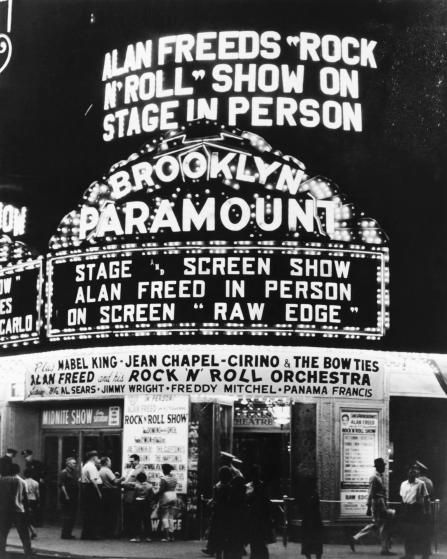 as Chuck Berry, Little Richard, Elvis Presley and Buddy Holly were groundbreaking not only in terms of music, but also their impact upon American culture. Rock and roll caused a backlash in some communities because of its suggestive lyrics and rebellious message. However, early rock and roll also broke down racial barriers during segregation, and had an impact on popular culture in terms of fashion, television and film. Because of the 1950s, music would never be the same.
as Chuck Berry, Little Richard, Elvis Presley and Buddy Holly were groundbreaking not only in terms of music, but also their impact upon American culture. Rock and roll caused a backlash in some communities because of its suggestive lyrics and rebellious message. However, early rock and roll also broke down racial barriers during segregation, and had an impact on popular culture in terms of fashion, television and film. Because of the 1950s, music would never be the same.
The social and political climate of any era is reflected through art, with music being a powerful and inspirational expression of ideas. However, context is key to understanding. For example, one could listen to Bruce Springsteen’s “The Rising” (2002) for the first time and simply think of it as a typical Springsteen album with songs about blue collar workers, interpersonal struggles and Americana. However, if the listener learns the album was released post 9/11, this immediately changes how the songs are interpreted. Springsteen’s traditional themes are still prevalent, but are now understood in relation to first responders at Ground Zero, religious tolerance and Americans healing together. The study of popular music is also a study of history, and how the various forces of a time helped shaped its creation.
2. Popular Music is Not Just Taylor Swift, Ed Sheeran, and Harry Styles (nothing against any one of them).
Sometimes I feel like the Jack Black character, Dewey Finn, from the movie “School of Rock” (2003). After becoming a bogus substitute teacher at a prep school, Finn decides to use his grade school class to win a Battle of the Bands contest. However, before they can begin rehearsing Finn explains that the first thing a band needs to do is talk about their influences. When students reply Christina Aguilera, Puff Daddy and Liza Minnelli, and don’t know who Led Zeppelin, Black Sabbath, or AC/DC are, an exasperated Finn yells, “What do they teach in this place?!”
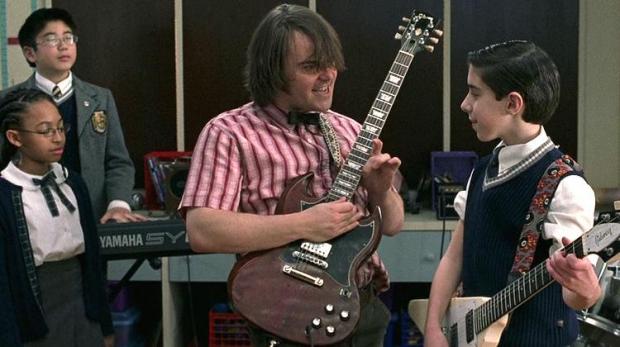
I’ve had the same experience teaching my U2 class. I’ve been surprised at the number of students who don’t know who U2 are, or didn’t realize they sang “Beautiful Day.” However, by the end of the semester, many students admit they have a new appreciation for U2 and their social activism. If a student walks away from my course thinking about music and music history in a different way, I’ve done my job.
3. You Get to Listen to Music. Lots and Lots of Music.
In my U2 class, we listen to every U2 album and watch clips from every U2 concert DVD. Students also write a paper about an artist or group that influenced U2 – like The Ramones, The Clash or David Bowie. To make their paper more complete, I encourage students to listen to music by this artist to better understand how their songwriting or sound may have influenced U2. There are only a handful of days all semester when students aren’t listening to, or talking about, music.
Certainly, listening to music is a welcome break from the stress and strain of college, but it’s not all fun and games. Students use their critical thinking skills to write about the meaning of U2’s song lyrics, album themes and concert performances. I’d like to think listening to and analyzing music makes their academic workload a little more enjoyable.
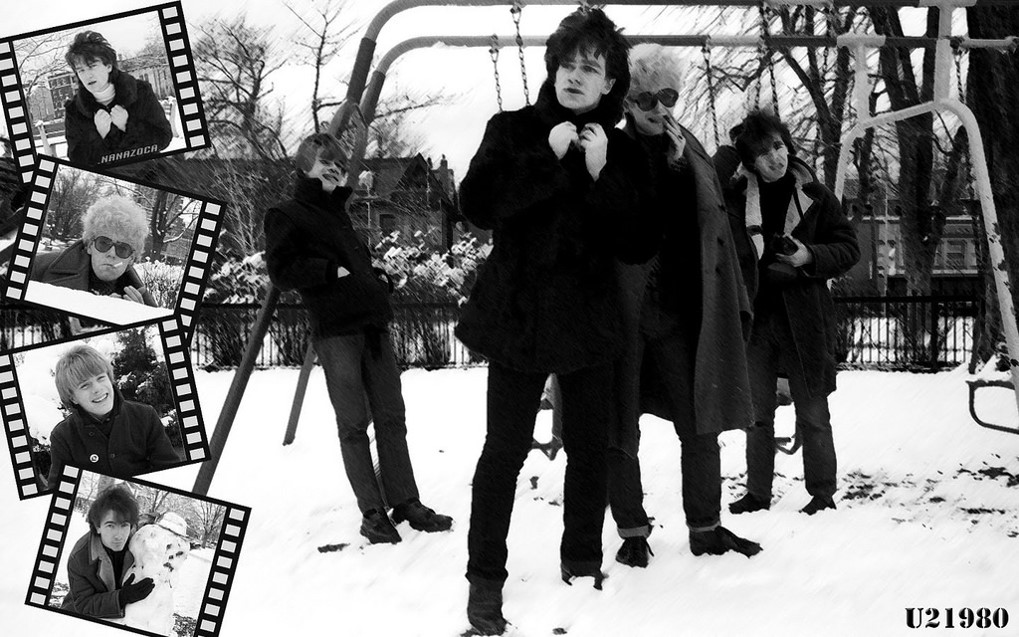
4. It Sparks Creativity.
Most college courses have an instructor’s manual with sample syllabi, suggested readings, as well as discussion and exam questions. A course on U2 required me to do extensive preparation literally years in advance (reading books, articles, listening to music, finding videos and interviews, etc.) to fill a 16-week schedule. However, because U2 is still creating music and touring, my syllabus changes slightly each year which keeps things fresh.
The reason I included this point as “important” is that after teaching the same courses for several years, I was starting to feel like I was running on a hamster wheel. Creating and teaching a class on U2 totally re-energized me in the classroom, and two years later, I look forward to teaching the class again this fall. So, I would encourage any teacher with an interest in popular music to create a course, or even a unit, that taps into their interest and appreciation of an artist, group or genre. Hopefully, doing so will have the same positive effect on their teaching as it did on mine.
5. Music Shapes Our Identity.
Music is perhaps the most personal of all media. While some count down the days until the latest “Game of Thrones” episode, or speculate about the future of Rey in the new “Star Wars” trilogy, music touches us on a deeper, more emotional level. Just watch the amazing documentary “Alive Inside” (2014) to see how listening to music awakens individuals suffering from memory loss. The documentary made me realize that my entire life story is on my iPod. Its thousands of songs take me back to my childhood swimming at the local pool, Friday night high school dances, and trips across the country with my family.
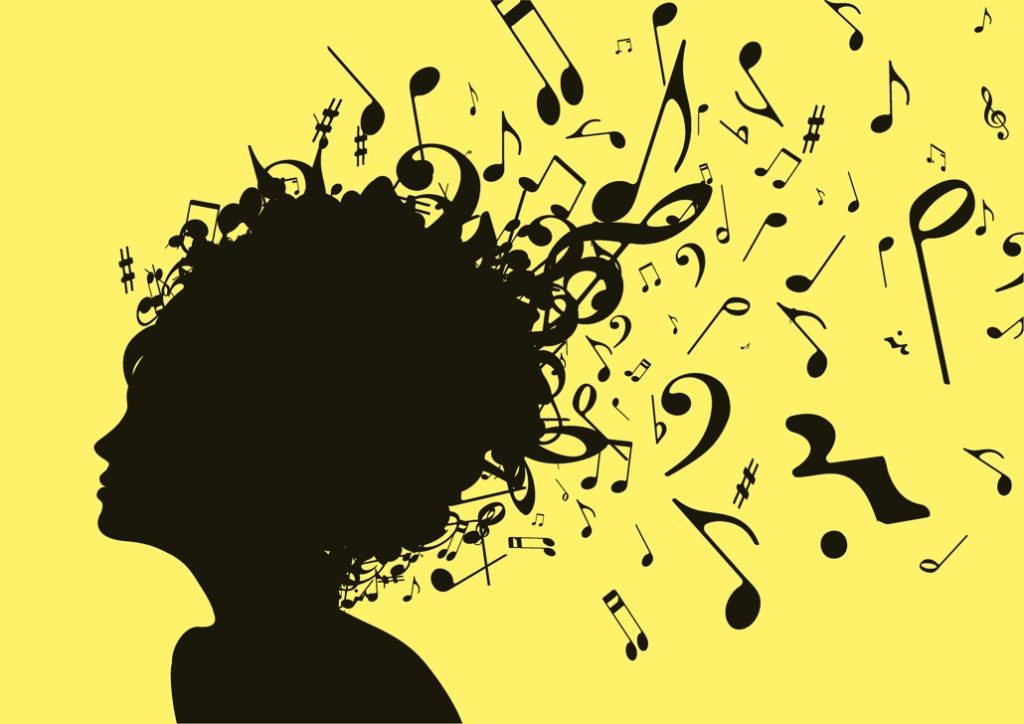
The first paper students write in my U2 class is about their personal history with music, sharing music memories from family vacations to their first concert. Students discover how important music was to their individual and social development, even if their first CD was Kidz Bop. Music and identity are inexorably linked, a reflection of our personal history, individuality, and perhaps more importantly, our humanity.
More Guest Lists
- James Cridland: 5 Countries You Should Look At For Radio Ideas
- Chris Peterson: 5 Podcasting Predictions
- Valerie Geller: 5 Things Radio Program Directors Should Start Doing (if you’re not already…)
- Jay Kernis: 5 Things I Learned in Television that (Public) Radio Should Know
- Rob Kass: 5 Things Every Radio Professional Should Know About Nielsen’s SDK
- A Simple Digital Treat to Thank Your Radio Listeners This Thanksgiving - November 13, 2023
- Interview Questions When Hiring Your Radio Station’s Next Digital Marketing Manager - November 6, 2023
- A Radio Conversation with ChatGPT: Part 2 – Promotions - October 30, 2023





I completely agree with this. Why? College is a place where musical knowledge and appreciation SHOULD be taught.
Some in radio broadcasting seem to think OUR job is to “teach” what “good music is”. Wish it could be that way, but it’s radio’s job to reflect the tastes of the listeners. Which is often in conflict with the crowd that wants us to be educators.
Kevin, thanks for the comment. I think schools can be a great place to educate and provide perspective. Stations can best use the information to entertain and inform. Maybe that’s a fine line, but I think there’s a distinction. Wonder what Nick Michaels thinks?
Everyone has at least ONE song that evokes such a strong sense response, that it will pull you back to “a time”. Bravo, and brilliant Mr. Whitt for exploring the power that music has had on shaping, and documenting, our history. I’d love to sign up for this class.
You could TEACH this class – and many others about the power of music. Thanks for commenting, Jeff.